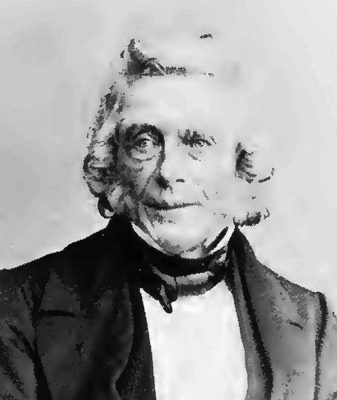
The war over natural selection continues. Not only did Charles Darwin (1812-1882) plagiarize Patrick Matthew’s (1790-1874) (pictured left) work but evolutionary scientists are increasingly critical of the theory. Mike Sutton, a criminology expert at Nottingham Trent University, spent years cross-referencing the works of Darwin alongside those of Matthew. According to Sutton,
“I have no doubt, based on the weight of new evidence, that Darwin did read Matthew’s book and then went on to replicate his discovery and key themes.”
Science correspondent Sarah Knapton, in the article, “Did Charles Darwin ‘borrow’ the theory of natural selection?” published by The Telegraph (UK) reported on Sutton’s findings concluding
“Darwin must not only have been aware of Matthew’s work but borrowed from it heavily” proving that “the naturalist [Darwin] lied.”
Patrick Matthew
Before the publication of The Origin of Species in 1859, Matthew published his book On Naval and Timber Aboraculture set out his theory based on his knowledge of trees in 1831 – the same year Darwin first set sail on from England on the HMS Beagle.
In 1860, after reading a review of The Origin of Species in the Gardeners’ Chronicle, Matthew promptly sent a letter to the publisher calling attention that Darwin’s theory was nothing new – he had published the essence of the same theory in his book published in 1831.
After reading Matthew’s letter, Darwin sent a letter to Charles Lyell: “In last Saturday Gardeners’ Chronicle, Mr. Patrick Matthews publishes a long extract from his work on ‘Naval Timber and Arboriculture’ published in 1831, in which he briefly but completely anticipates the theory of Nat. Selection. I have ordered the book, as some few passages are rather obscure, but it is, certainly, I think, a complete but not developed anticipation!”
Recognizing Matthew’s contributions, Darwin replied in a letter to the Gardeners’ Chronicle explaining: “I freely acknowledge that Mr. Matthew has anticipated by many years the explanation which I have offered of The Origin of Species, under the name of natural selection.”
In the third edition of The Origin of Species (1861), Darwin acknowledged Matthew’s earlier work, stating that Matthew “clearly saw… the full force of the principle of natural selection.”
Matthew was livid. Claiming credit for developing the theory, Matthew marketed himself as “Discoverer of the Principle of Natural Selection” imprinted on his business cards. Despite the business cards and Darwin’s statements, however, Matthew, along with Alfred Russel Wallace (1823-1913), has continued to be among the forgotten in the history of evolution.
After years of extensive investigation, though, Sutton has solid evidence to demonstrate Darwin’s natural selection theory was not “anticipated” – Matthew originally developed the theory.
At the time, Matthew’s book was popular and considered a scholarly text. Even Robert Chambers (pictured right), the author of Vestiges of Creation (1844) a widely popular book in 1859, and Prideaux John Selby, who edited and 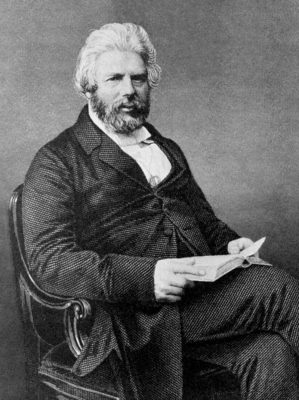 published Albert Russel Wallace’s famous Sarawak paper (1855) on the mutability of species, give clear credit to Matthew’s book.
published Albert Russel Wallace’s famous Sarawak paper (1855) on the mutability of species, give clear credit to Matthew’s book.
In questioning Darwin after the story broke in Gardeners’ Chronicle, Darwin responded, saying he had never seen the book. Based on the evidence, Sutton told Knapton
“In my opinion, Charles Darwin committed the greatest known science fraud in history by plagiarizing Matthew’s complete hypothesis of natural selection, his terminology, observations, and creative explanations.”
“Without Patrick Matthew,” according to Sutton, “On The Origin of Species would never have been written. Matthew, not Darwin, should be celebrated as the discoverer of the unifying theory of biology and the solver of the origin of species.”
“Contrary to what the authors of thousands of textbooks and scholarly have been asserting for the past 154 years,” Sutton continues –
“the original discoverer of the law of natural selection most surely did influence Alfred Russel Wallace and Charles Darwin with his prior-published discovery… Discovery in science is seldom a zero-sum game. Yet Darwin and Wallace both claimed zero-prior knowledge of the prior publication of Matthew’s work after they replicated it 27 years later. The scientific community credulously believed them for the past 154 years.”
Natural Selection, Does It Matter?
As the origin of Darwin’s foundation tenet, “By Means of Natural Selection,” is increasingly criticized, so has the relevancy – even within the evolution industry.
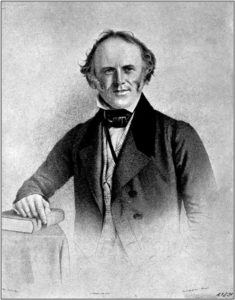 The history of natural selection theory as the “means [mechanism]” for the origin of new species has always been torturous. At the time of the publication of The Origin of Species, Darwin was challenged even by his closest colleagues, including Charles Lyell (pictured left) and Joseph D Hooker. In his autobiography, Darwin noted –
The history of natural selection theory as the “means [mechanism]” for the origin of new species has always been torturous. At the time of the publication of The Origin of Species, Darwin was challenged even by his closest colleagues, including Charles Lyell (pictured left) and Joseph D Hooker. In his autobiography, Darwin noted –
“Lyell and Hooker, though they would listen with interest to me, never seemed to agree. I tried once or twice to explain to able men what I meant by Natural Selection but signally failed.”
“Lyell accused Darwin of ‘deifying’ natural selection,” according to professor John Beatty at the University of British Columbia “by attributing to it the sort of creativity that should be reserved for the Creator.” The controversy over the theory since then has continued into the twenty-first century.
Contradictions in defining natural selection in The Origin of Species didn’t help either. Darwin contradicted himself on fifteen of the major aspects of the theory – as detailed in Darwin, Then and Now, the Most Amazing Story in the History of Science.
Now more than 150 years later, criticism over natural selection even comes from Richard Dawkins, Darwin’s leading advocate –
“For simplicity, we speak of mutation as the first step in the Darwinian process, natural selection as the second stage. But this is misleading if it suggests that natural selection hangs around for a mutation that is either rejected or snapped up, and the waiting begins. It could have been like that: natural selection of that kind would probably work, and maybe does work somewhere in the universe. But as a matter of fact, on this planet, it usually isn’t like that.”
In the words of 1999 National Medal of Science winner by President Bill Clinton, Lynn Margulis,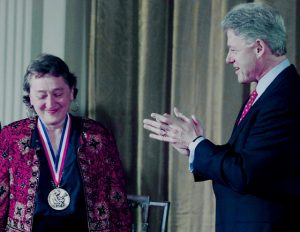
“Darwin was brilliant to make ‘natural selection’ a sort of godlike term, an expression that could replace ‘God,’ who did it—created forms of life. However, what is natural selection’ really? It is the failure of the biotic potential to be reached. And it’s quantitative… Natural selection is intrinsically an elimination process.”
“Natural selection occurs all the time,” according to Margulis, “But natural selection is an elimination process”−not a creative agent responsible for the origin of new species. Margulis continues –
“Darwin’s claim of ‘descent with modification’ as caused by natural selection is a linguistic fallacy.”
Making the same point, Professor James A Shapiro of the University of Chicago in Evolution, a View from the 21st century (2011) recognizes –
“It is important to note that [natural] selection has never led to the formation of a new species, as Darwin postulated.”
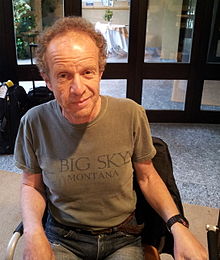
Eugene Koonin
In the 21st century, then, natural selection is viewed as either an agent of elimination or as “the primary form of selection is purifying selection maintaining the status quo” as argued by Eugene V. Koonin, The Logic of Chance, the Nature, and Origin of Biological Evolution (2011).
“Natural selection could perhaps be invoked as a mechanism accounting for the survival of the species,” Italian geneticist Giuseppe Sermonti argues –
“But the claim that natural selection is creative of life, of life’s essence and types and orders, can only leave one dumbstruck.”
To the question, “Does It Matter,” in one word – No. Whether Matthews, Wallace, or Darwin receives credit for discovering natural selection, as Sutton argues, is an exercise in futility. The war over natural selection is over. Natural selection, as the factual origin of species, is a literary and scientific fraud.
Genesis
Unlike Moses’ account in Genesis, Darwin’s speculations spin more controversy than science.
Refer to the Glossary for the definition of terms and to Understanding Evolution to gain insights into understanding evolution.

